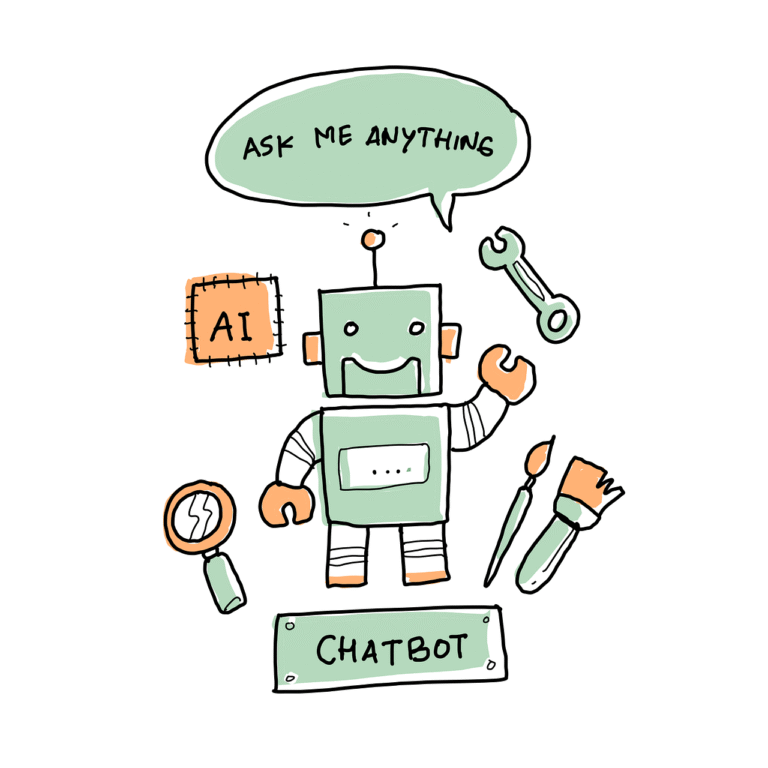Maximizing Marketing Impact: The Power of AI Marketing Automation
AI marketing automation is transforming the way businesses approach their marketing strategies. By automating repetitive tasks and analyzing data in real-time, companies can create more personalized and targeted campaigns that resonate with their audience. This not only saves time and resources but also allows businesses to stay agile and adaptive in a rapidly changing market landscape.
One of the key benefits of AI marketing automation is its ability to analyze vast amounts of data and provide actionable insights that inform marketing decisions. By leveraging machine learning algorithms and natural language processing, businesses can gain a deeper understanding of their customers’ preferences, behaviors, and pain points. This enables them to craft marketing messages that are tailored to specific segments of their audience, increasing the likelihood of conversion and driving revenue growth.
The integration of AI marketing automation with other emerging technologies, such as the Internet of Things (IoT) and cloud computing, is further amplifying its impact on marketing strategies. For instance, IoT devices can provide real-time data on customer interactions, which can be fed into AI-powered marketing automation systems to trigger personalized responses and enhance customer engagement. Similarly, cloud-based infrastructure can support the scalability and flexibility needed to deploy AI marketing automation solutions across multiple channels and touchpoints.
As businesses continue to embrace AI marketing automation, they are discovering new opportunities to innovate and differentiate themselves in a crowded market. By automating routine marketing tasks, companies can free up resources to focus on higher-level creative thinking and strategic planning. This, in turn, enables them to develop bold and innovative marketing campaigns that capture the imagination of their audience and drive long-term brand loyalty. Whether it’s through AI-powered chatbots, personalized email marketing, or predictive analytics, the possibilities for AI marketing automation are vast and exciting, and businesses that seize these opportunities are poised to reap significant rewards.
Revolutionizing Marketing Strategies with AI Automation
AI chatbots have become a valuable asset for businesses looking to enhance their customer engagement. These virtual assistants can provide instant support, answer customer queries, and even recommend products or services based on individual preferences. By integrating AI chatbots into their marketing strategies, companies can deliver seamless and personalized experiences that drive customer satisfaction and loyalty. One of the key benefits of AI chatbots is their ability to learn and adapt to customer behavior over time, allowing them to provide more accurate and relevant recommendations. This not only enhances the customer experience but also helps businesses to build trust and credibility with their target audience. Furthermore, AI chatbots can be easily integrated with other AI marketing automation tools, such as AI sales automation and AI assistants, to create a comprehensive marketing strategy that drives real results. By leveraging the power of AI chatbots, businesses can stay ahead of the competition and achieve their marketing goals more efficiently. The use of AI chatbots also enables businesses to collect valuable customer data and insights, which can be used to inform future marketing decisions and optimize their overall strategy. Additionally, AI chatbots can help businesses to reduce their customer support costs and improve their response times, leading to increased customer satisfaction and loyalty. Overall, the integration of AI chatbots into a company’s marketing strategy can have a significant impact on their bottom line, and is an essential component of any successful AI marketing automation strategy. As technology continues to evolve, it’s likely that we’ll see even more innovative applications of AI chatbots in the world of marketing, and businesses that embrace this technology will be well-positioned for success in the years to come.
Enhancing Customer Engagement with AI Chatbots
AI sales automation tools are revolutionizing the way sales teams operate. By automating repetitive tasks, such as lead scoring, email outreach, and follow-ups, companies can streamline their sales processes and focus on high-value activities. This not only boosts efficiency but also improves sales productivity and effectiveness, leading to higher conversion rates and revenue growth.
One of the key benefits of AI sales automation is its ability to analyze vast amounts of data and provide actionable insights that inform sales strategies. By leveraging machine learning algorithms and natural language processing, AI-powered sales tools can identify patterns and trends in customer behavior, enabling sales teams to tailor their approaches and personalize interactions. This level of personalization not only enhances the customer experience but also increases the likelihood of successful conversions.
Moreover, AI sales automation enables businesses to respond promptly to changing market conditions and customer needs. With the ability to automate routine tasks, sales teams can quickly adapt to new developments and capitalize on emerging opportunities. For instance, AI-powered chatbots can be deployed to handle initial customer inquiries, freeing up human sales representatives to focus on more complex and high-value interactions. This agility and responsiveness are crucial in today’s fast-paced business environment, where companies must be able to pivot quickly to stay ahead of the competition.
As companies continue to embrace AI sales automation, they can expect to see significant improvements in their sales performance metrics. By automating routine tasks and leveraging data-driven insights, businesses can optimize their sales funnels, reduce the length of sales cycles, and increase the overall efficiency of their sales operations. Furthermore, AI sales automation can help companies to better align their sales and marketing efforts, ensuring that both teams are working towards the same goals and objectives. By harnessing the power of AI sales automation, businesses can unlock new levels of sales productivity and drive sustainable revenue growth.
Boosting Sales Efficiency with AI Sales Automation
Intelligent automation is key to improving lead nurturing efforts. By leveraging AI-powered tools to segment leads, personalize communications, and track customer interactions, businesses can nurture prospects more effectively and move them through the sales funnel. This not only increases conversion rates but also enhances the overall customer experience, driving long-term loyalty and retention.
One of the primary benefits of intelligent automation in lead nurturing is its ability to analyze vast amounts of data and provide actionable insights. By examining customer behavior, preferences, and pain points, AI-powered tools can help businesses create highly targeted marketing campaigns that resonate with their audience. This level of personalization enables companies to build stronger relationships with their customers, fostering trust and loyalty that can lead to increased brand advocacy and repeat business.
The implementation of intelligent automation in lead nurturing also enables businesses to respond promptly to customer inquiries and concerns. AI-powered chatbots and virtual assistants can be integrated into marketing automation systems to provide 24/7 support, ensuring that leads receive timely and relevant information. This not only enhances the customer experience but also helps to reduce the workload of human sales teams, allowing them to focus on high-value tasks such as strategy and relationship-building. By automating routine interactions, businesses can free up resources to invest in more strategic initiatives that drive growth and revenue.
As businesses continue to adopt intelligent automation in their lead nurturing efforts, they can expect to see significant improvements in their marketing ROI. By streamlining and optimizing their marketing processes, companies can reduce waste, eliminate inefficiencies, and allocate their resources more effectively. Moreover, the data and insights generated by AI-powered tools can be used to refine and refine marketing strategies, ensuring that businesses stay ahead of the competition and achieve their goals. Whether it’s improving conversion rates, enhancing customer engagement, or driving long-term loyalty, intelligent automation is revolutionizing the way businesses approach lead nurturing, and its impact will only continue to grow in the years to come.
Improving Lead Nurturing with Intelligent Automation
AI assistants are transforming the way businesses deliver customer service. By providing 24/7 support, instant responses, and personalized interactions, AI assistants can enhance customer satisfaction and loyalty. Whether it’s handling basic inquiries or resolving complex issues, these virtual assistants can streamline the customer service process and improve overall operational efficiency.
One of the key benefits of AI assistants in customer service is their ability to learn and adapt to customer behavior. By analyzing customer interactions and preferences, AI assistants can provide tailored recommendations and solutions, leading to a more personalized and engaging experience. This not only improves customer satisfaction but also helps businesses to build strong relationships with their customers, ultimately driving loyalty and retention. Furthermore, AI assistants can help businesses to identify patterns and trends in customer inquiries, enabling them to make data-driven decisions and optimize their customer service strategies.
The integration of AI assistants with other AI marketing automation tools can also amplify their impact on customer service. For instance, AI chatbots can be used to handle initial customer inquiries, while AI assistants can take over to provide more in-depth support and resolution. This seamless handover ensures that customers receive consistent and efficient support throughout their journey. Additionally, AI assistants can be integrated with CRM systems to provide a unified view of customer interactions, enabling businesses to track customer behavior and preferences across multiple touchpoints.
As businesses continue to adopt AI marketing automation, the role of AI assistants in customer service is likely to evolve further. With advancements in natural language processing and machine learning, AI assistants will become even more sophisticated, enabling them to handle complex customer inquiries and provide more nuanced support. Moreover, the use of AI assistants will enable businesses to focus on high-value tasks, such as strategy and innovation, while automating routine customer service tasks. By leveraging the power of AI assistants, businesses can unlock new levels of customer engagement, loyalty, and satisfaction, ultimately driving long-term growth and success.



